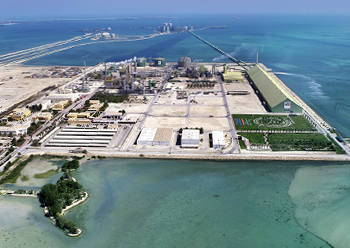
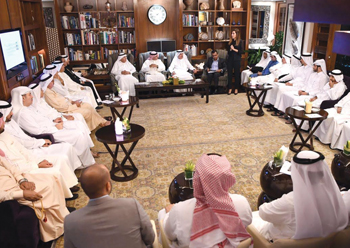 Representatives of leading family businesses of Bahrain in a Majlis hosted by Family Business Counci
Representatives of leading family businesses of Bahrain in a Majlis hosted by Family Business Counci
Family businesses are built with a vision for the future in mind. Although they are often viewed as change-resistant, the reality is that many family businesses have an innate ability to self-innovate, demonstrate resilience in times of change, inspire trust, and build a competitive advantage while maintaining their entrepreneurial spirit and their core values. It is important that a well-defined succession plan or good corporate governance is implemented before the business passes to the next generation (NextGen). But beyond diversified investment strategies to combat wealth attrition, there is one major planning consideration: intergenerational wealth transfer.
Through recent PwC research, we already know that almost two-thirds of family businesses in the Middle East already have the NextGen actively involved and working in them. Additionally, more than half of the family businesses in the Middle East already have NextGen family members as majority shareholders. However only about a third of families and family businesses have a documented and communicated succession plan in place.
Family offices are accustomed to the challenges of change. So seamless transition to the NextGen is key. One of the hallmarks of the rising generation is an increasing demand for accountability and transparency across every layer of the family offices’ activities. Already, many NextGen members are directly involved in adapting and developing existing structures and processes.
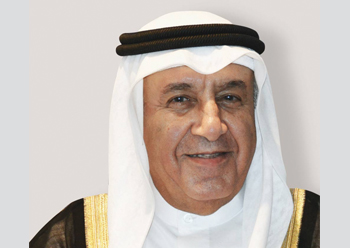 |
|
Khaled Al Zayani: leading by example |
A recent report by the Boston Consulting Group (BCG) revealed the changing landscape of the wealthy in Bahrain over the coming years, with the rise of the affluent next generation high-net-worth clients. These individuals, between 20 and 50 years of age, have longer investment horizons, a greater appetite for risk, and often a desire to use their wealth to create positive societal impact as well as earn solid returns. The report quotes BCG as saying the next five years have the potential to usher in a wave of prosperity for individuals and wealth managers alike, but it will require the latter to look at the market through a new set of lenses.
Bahraini businesses have successfully integrated the next generation into the family business and have capitalised on the key pillars and considerations to help with the successful integration of NextGen family members to the family business. This early integration of the NextGen, the research found, was perhaps the critical measure that helped family offices make the succession process efficient and having the best chance of success for Bahraini businesses.
Governance: Corporate governance in Bahrain has been one of the key enablers that businesses capitalised on. Bahrain has formulated a robust governance structure that can ensure that the family’s wealth is adapted and receptive to the new generation’s priorities. Bahrain has stressed on the importance to assess the structural and operational governance for corporations as well as the family office’s organisational structure in terms of effectiveness, decision making, risks, control, and oversight. Adding to that, family governance fails when it is strictly the founder’s vision imposed upon the NextGen. The fear of ‘change’ and reluctance to give up ‘control’ are also factors widely considered to hinder a business’ diversification plans.
 |
|
Bhana |
The past two years have taught us all that it is the ability to adapt to changing circumstances which will help businesses survive and succeed. Families must realise the importance of giving future generations the opportunity to meet the developments and challenges of the future. All this within a pre-agreed, planned and carefully executed plan with buy-in and input from all the family, including founders and NextGen alike.
Structure: Also, a review of the business structure is key to the integration of NextGen family members. It plays a pivotal role preserving the family wealth as they seek to evaluate the alignment between their long-term vision, strategy, and the ability to minimise risk. At the same time, there is an accelerating need to simplify the process.
A recent KPMG report has demonstrated how the unique structure of family businesses has empowered them to respond to the impact of Covid-19. The study found that the involvement of the family and their long-term mindset has enabled them to demonstrate resilience in the pandemic, placing them in a key role to lead the economic recovery.
Succession plan: a failure to plan can also lead to intense family conflicts. Family businesses dominate the region, but despite entire legacies at stake, succession planning is often the elephant in the room. Families understandably don’t want to spark disagreements, and many find it difficult to even raise the subject. But failing to plan now is likely to intensify these conflicts later.
A clear example of family business integration is Khaled Al Zayani, the Founder of Al Zayani Investments, which made the Forbes list of top 100 Arab family businesses. Al Zayani business has made it now to its second generation of the family-owned business. Also, another example is Tariq Abdul Latif Kanoo, who marks the fifth generation in the family business. The nourishment extended by such family businesses simplifies the industrial development and supports their sustainable growth in Bahrain. Jersey Finance had the pleasure of hearing from both of these industry titans and successful Bahraini business owners at a recent event we held in Bahrain titled “Family Businesses and the Next Generation”. The key pillars identified above and their early adoption by the family and family business featured heavily in the insights they shared with us.
Legal advice matters: Failure to legally formalise business succession planning, structuring and compliance can result in sometimes unnecessary challenges, and, worse still, assets passing to family members for whom they were not originally intended for. Expert legal advice in any jurisdiction is an absolute necessity for international families. Jersey has been ranked within the four most favoured jurisdictions by advisers to Middle Eastern families seeking wealth management and succession solutions outside the region. Jersey’s international finance centre has a well-established history for providing family businesses with bespoke solutions for succession planning and family governance.
It has well-developed trust laws, and courts experienced in dealing with all manners of trust disputes as well as providing direction to trustees on key issues relating to the administration of trusts where circumstances arise. Jersey is proud of its long and rich association with Bahrain, both the public and private sector, including the very important family business sector.

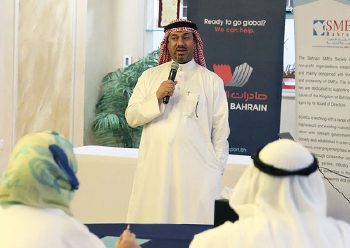
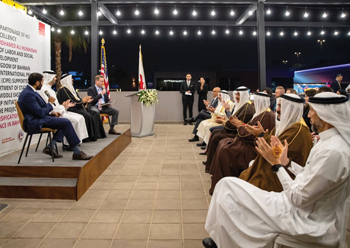

.jpg)
